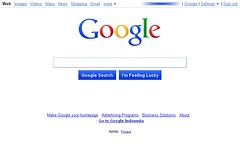| Scholarly journal articles |
- Journals are published on a regular basis
- Usually includes an abstract/summary
- Often report on original research
- Cite other works and have lists of references
- Articles are lengthy usually >10 pages
- Author(s) are researchers, professors, subject experts and credentials are provided
- Journal focuses on a specific field of study
- Written for academic audience
- Available in print or online
|

Click for example
|
| |
|
|
| Trade publications |
- Trade publications are published on a regular basis
- Trade publications are written for those involved in a specific industry or trade
- Trade articles are written about specific industries, trades or products
- Articles are shorter usually a few pages in length
- No list of references
- Often have glossy images
- Available in print or online
|

Click for example |
| |
|
|
| Magazine articles |
- Magazines are published on a regular basis
- Magazines are written for the general public
- Magazine articles are written about topics of general interest
- Articles are shorter usually a few pages in length
- No list of references
- Often have glossy images
- Available in print or online
|

Click for example |
| |
|
|
Open access
news articles |
- Published on websites of newspapers, wire services, radio, television
- Written for the general public
- Usually about very current events
- Written by news reporters or may not have an author
- Articles are short
- No references listed
- Often include advertising
- Often invite comments
|

Click for example |
| |
|
|
News articles
retrieved from
an online
database |
- Published by newspapers, wire services, radio, television
- Accessible online through databases like Factiva; Canadian Newsstand etc.
- Written for the general public
- Usually about very current events
- Written by news reporters or may not have an author
- No references listed
- No advertising
- No comments invited
|

Click for example |
| |
|
|
| Weblogs |
- May be hosted by anyone – authoritative sources, news agencies, organizations as well as members of the general public
- Promote discussion on a specific theme/topic/cause
- Comments are invited
- Usually shows an archive of posts
- Posts are often categorized by specific topics
|

Click for example |
| |
|
|
Press
releases/News
releases |
- Prepared by government, corporations, organizations, individuals etc.
- Released to the news media
- Usually making an announcement about a current event, decision or development
- Can be found on an organization's website
|

Click for example |
| |
|
|
Corporate
websites |
- Purpose is to provide the public with information about the company and promote its products or services
- Includes information such as: company history, operations, products/services, executives, investors’ information, news etc.
|

Click for example |
| |
|
|
Books/ebooks
|
- Books are available in print and electronic versions
- Accessed through the library catalogue or an e-book aggregator such as Ebrary, Books 24X7 Business Pro; Safari Online
|

Click for example |
| |
|
|
Chapters in
a book |
- Chapters in a book may all be written by the author(s) of the book, OR
- a book may be a collection of chapters each written by different author(s) – in this case the book is “edited” by one or more editors
- They may be confused with journal articles - look for the word "Chapter" and note if there is a journal title, volume and issue number at the top or bottom of the page.
|

Click for example |
| |
|
|
| Wikis |
- Websites that allow anyone to add, delete or edit content using a web browser
- Searchable by keyword
|

Click for example |
| |
|
|
Annual reports
|
- Publications provided by publicly-traded companies to their shareholders
- Also called 10-K reports (United States)
- Provide information about operations and detailed financial statements
- May be found on a company website; SEDAR (Canadian companies) or EDGAR (US companies)
- Usually published electronically but many companies also publish a print version
|

Click for example |
| |
|
|
Government
reports |
- Published by government departments or agencies
- May be in print or electronic format
- Government documents include legislation, regulations, reports etc.
|

Click for example |
| |
|
|
Industry reports
|
- Published by business information publishers like Marketline; Mergent; Standard & Poor’s; Business Monitor International; IBISWorld; Euromonitor, etc.
- Provide information at the industry level and usually include market information, statistics, trends, issues, outlook/forecast etc.
- Usually accessed electronically through online business databases
|

Click for example |
| |
|
|
Analyst reports
|
- Written by financial analysts who are affiliated with major investment firms
- These reports are written strictly from an investment point-of-view and include the analyst's recommendations
- May be at the company or industry level
- Usually accessed electronically through the online databases ThomsonONE or Bloomberg
|

Click for example |
| |
|
|
| Social media |
- Facebook, Twitter, Instagram, LinkedIn, YouTube, Pinterest, etc.
- Purpose is to share and exchange information in virtual communities
- All content is user-generated
- “Authored” by businesses, organizations, communities and individuals – authority of the information depends on the author/creator
|

Click for example |
| |
|
|

The College Student's Research Companion: Finding, evaluating, and citing the resources you need to succeed by Arlene Rodda Quaratiello; Jane Devine
Call Number: Z710 .Q37 2011ISBN: 9781555707293Publication Date: 2010-11-01Provides information on content found on the web and guidance on using traditional and online sources of information.
















